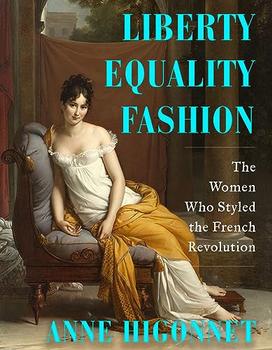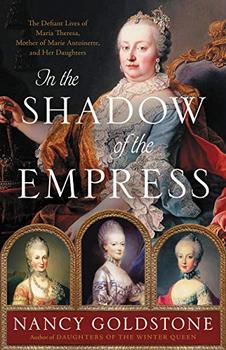Summary | Excerpt | Reading Guide | Reviews | Beyond the book | Read-Alikes | Genres & Themes | Author Bio

Portrait of a Woman
by Robert K. MassieIf you're looking for the one book to pack in your carry-on bag for vacation, this is it. This biography of Catherine the Great from Robert Massie is a hefty volume, worthy of long road trips, quiet country vacations, and weekends dedicated to getting lost in a book. The 574 pages benefit from wide swaths of time that can be spent appreciating this long, complex life story. I was able to read this book while on winter break between semesters and was grateful for a period of (mostly) uninterrupted calm to appreciate the breadth of this biography.
Despite its length and scrupulous detail, Massie's biography does not flag and become overly didactic or formulaic; he appears intent on following every action of Catherine's life, regardless of how small, and on showing these subtle details in the larger scope of her sociopolitical power. He carefully explains and analyzes memoirs, letters, and political essays from both Catherine and her contemporaries and demonstrates a literary critic's knack for extracting meaning from single phrases or words. In doing so, he creates a dramatic tension that is as good as any novel.
Occasionally, however, he incorporates quotations without clear attribution of a source, which is a bit mysterious, but mostly annoying. In spite of these small inconveniences, Massie's writing is consistently clear, unobtrusive, and does not interfere with Catherine's personal story. If anything, his tone matches the grandeur of her life, written with bold, eloquent phrases. Although Massie has a remarkable academic background - he studied at Yale and was a Rhodes scholar at Oxford - this biography is not written exclusively for a scholarly audience and will appeal to a wide audience.
The subtitle of this biography is Portrait of a Woman, and Massie makes her humanity very clear. While there are plenty of biographies that chronicle the political lives of eighteenth century Russian aristocracy, few labor to uncover the private, personal lives of those individuals. Perhaps what is most notable about Massie's biography is that it balances Catherine's inner, private life with her public image and actions, and shows how those two roles are closely connected. This linking of what is private and what is political dredges up thoughts about how modern political figures attempt, if at all, to separate the affairs of their personal and professional lives. And though Massie does not directly discuss the ethics of these links, he makes it clear that they are, nevertheless, a vital component of Catherine's life, which is motivated by both personal desires and political clout.
Massie's version of Catherine shows readers a woman who was ambitious, literary, and genuinely admirable. Having sustained a long interest in the life of Catherine's contemporary, Marie Antoinette, I was excited to see a biography of an eighteenth century female political figure receive strong publicity. Like Marie Antoinette, Catherine the Great's reputation has been obscured by a fair amount of rumors and myth. It's refreshing to see a new interest in re-examining how her life influenced both Russia and Europe. I hope that as Antonia Fraser's Marie Antoinette led to a greater appreciation for Antoinette's role in history, so too will Massie's biography aid in developing a clearer, stronger collective memory of Catherine the Great.
Additional Info
To hear Robert K. Massie talk about the life of Catherine the Great, click on NPR's Weekend Edition feature entitled "Catherine the Great: First She Read, Then She Ruled".
![]() This review was originally published in The BookBrowse Review in February 2012, and has been updated for the
September 2012 edition.
Click here to go to this issue.
This review was originally published in The BookBrowse Review in February 2012, and has been updated for the
September 2012 edition.
Click here to go to this issue.

If you liked Catherine the Great, try these:

by Anne Higonnet
Published 2024
Three women led a fashion revolution and turned themselves into international style celebrities.

by Nancy Goldstone
Published 2022
The vibrant, sprawling saga of Empress Maria Theresa - one of the most renowned women rulers in history - and three of her extraordinary daughters, including Marie Antoinette, the doomed queen of France.
Your guide toexceptional books
BookBrowse seeks out and recommends the best in contemporary fiction and nonfiction—books that not only engage and entertain but also deepen our understanding of ourselves and the world around us.